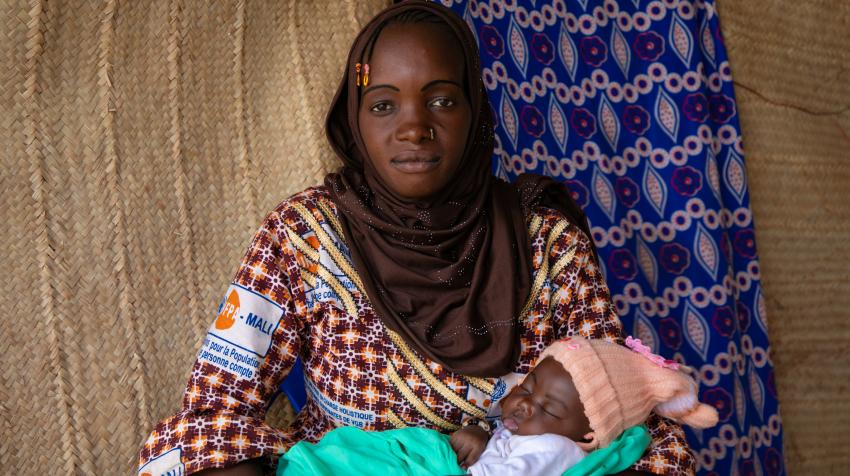From No. 3, Vol. XLVIII, “The Digital Dividend”, 2011
The United Nations plays a key role in overcoming one of the major challenges and harnessing one of the greatest opportunities facing humankind today -- bridging the digital divide, both among and within countries.
The importance of open, accessible, and relevant communications for fostering national development, social fulfillment, and human dignity, is undeniable. The more communicated a society is, the more opportunities it will generate. Here lies the urgency of opening the gates of information and communication to the largest possible number of people. Any platform and any media are relevant for this task. However, the key of the contemporary equation lies in widespread digital connectivity, which means upgrading information and communication technologies (ICTs) in the developing world to the level already enjoyed by most developed countries.
This is the real meaning of bridging the digital divide. The task is not just an issue of resources and technologies, nor of hardware and software. It is also a matter of wise priorities, good policies, intelligent leadership, transparent decision, and population involvement.
The good news is that the United Nations is already working hard towards bridging the digital divide, and is willing and capable of doing more. The bad news is that the challenge is immense, and final success depends on a variety of actors and factors which include national and local governments, public organizations and private enterprises, technical improvements, as well as political will and freedom.
From No. 3, Vol. XLVIII, “The Digital Dividend”, 2011
In order to expand its role and making greater inroads, the United Nations needs to work on two tracks -- maximizing its direct impact, and leveraging the power of all relevant stakeholders, from both the supply and demand ends of the communication continuum.
There is mounting evidence that the digital fracture is correlated with three major sets of issues:
- Economic development, which condition the ability of each country-or region therein -- to put in place and constantly upgrade the necessary connectivity.
- Public and private investment initiatives, which determine the use of available resources and their allocation to critical drivers such as education, digital infrastructure, and relevant services.
- Political conditions, which either foster or hinder the possibilities of people, groups, and enterprises to freely seek and share information, opinions, and other forms of expression.
It is clear that bridging the digital gap is not only a matter of more resources, but of how they are used and under what conditions. For example, there are countries or regions with very limited financial capacity that have dramatically improved access to cell phones or the Internet, thanks to private entrepreneurs acting in a context of respect for the rule of law, transparency, and political freedom. However, there are also some states that deliberately limit access to communication exchanges, either by forbidding access to good infrastructure already in place, or by raising walls for its open use. Of course, many countries have the will and need for spreading connections and bettering education, but simply lack the funds for moving forward. They deserve help. Therefore, we face different digital gaps, with varying degrees, causes, and challenges. Given this, in ICT as in many other issues related to development, there is no "one size fits all" strategy to follow.
At the same time, there is mounting evidence that economic growth, market size, wise investments, education penetration, entrepreneurial will, dynamic markets, good and transparent regulation, and political freedom are all conducive to the dynamism, availability, and affordability of ICT. Data issued on 16 May 2011 by the International Telecommunications Union (ITU), shows some uplifting trends regarding ICT penetration and pricing throughout the world. Between 2008 and 2010, the price of high-speed Internet connections, on a global average, dropped by more than 50 per cent; that of mobile cellular dropped by 22 per cent, while the number of subscriptions grew from 4 to 5.3 billion worldwide.
ITU reported that the major drop for fixed broadband services occurred in the developing world where the price of mobile lines has also been decreasing. However, there also exists a dark side to this trend. It is the huge difference in relative expenses between developed and developing countries. According to the ITU, while ICT prices in much of Europe and high income countries in the Asia-Pacific region represents less than 1 per cent of their gross domestic income per capita, it jumps to 17 per cent, on average, for developing countries, with many differences among them. So, bridging differences in relative prices is another of the major challenges towards achieving widespread use of ICT among people in developing countries.
For maximizing its direct impact in such a complex context, the United Nations is working on raising political awareness and commitment among states, improving resource availability, and providing technical guidance and training. For example, in 1993, under request of the United Nations Educational, Scientific and Cultural Organization (UNESCO), the General Assembly established 3 May as World Press Freedom Day, emphasizing the importance of open communications and free media, both for individual human beings and societies, as a foundation for civil and political rights, and as an instrument for inclusive development.
In November 2005, the World Summit on the Information Society held in Tunis, and preceded by regional conferences, adopted an ambitious agenda for promoting ICT for development. In 2006, 17 May was declared World Telecommunication and Information Society Day, thus bringing to the fore the relevance of the new media and technologies, and the urgency of bridging the gap between the "have" and "have nots".
The United Nations Development Program (UNDP) and other UN agencies and programmes have provided technical assistance and expertise to Member States on ICT-related areas, including good regulation. Also, training has been provided for both the public and private sectors in the use of new media and social networks.
It may be representative of the year 2000 when the Millennium Development Goals were established, that there is none directly related to ICT. At the same time, as more MDG targets are met, the better the impact on communication access potential.
Since full-blown access of ICT depends on so many stakeholders, from individual citizens to major corporations, passing through academic institutions, community organizations and non-governmental organizations (NGOs), there is a key word for maximizing the impact of the UN beyond its direct actions -- partnerships. It is not just a matter of the UN directly partnering with outside (non-state) actors. It is also important to promote, at the national and international levels, good partnerships between businesses and academia, among diverse communities, or between grassroots organizations and potential "angel" supporters or investors. And, of course, to stimulate a clear commitment on the part of donors to support well-guided initiatives in the developing world.
Promoting partnerships also consists of building, collecting, and sharing good practices in order to multiply the impact of limited resources or for implementing effective, cost-efficient, and cognitive relevant ways of incorporating ICT in the formal and informal education processes.
Through its Office for Partnerships, the United Nations has made major inroads in fostering collaboration among different stakeholders in areas such as social innovation, entrepreneurship, business collaboration with the MDGs, and democratic promotion, among others. However, despite its good management and growing impact, the Office has yet to become a recognized mainstream operation in the UN family. So, given the nature of the digital divide, it may be time to start thinking of extending the Office's role and resources into that area, and providing it with more resources.
A great potential could also be unleashed through civil society at the national and international levels. There is ample room to improve and re-energize the Economic and Social Council Civil Society Network, to leverage the relationship of the UN Department of Economic and Social Affairs with more than 13,000 Civil Society Organizations included in its database, and to look for ways for to actively engage NGOs affiliated with the UN Department of Public Information in the ICT push in developing countries. Effective and responsible local NGOs could also partner with the local offices and programmes of the United Nations Development Programme in developing creative ways to overcome, at the national level, the digital divide. For multiplying the potential of partnerships, the UN will certainly need resources, but even more so openness, flexibility, and creativity on the part of its personnel and especially Member States in order to overcome a traditional reluctance to engage with other emerging stakeholders.
The key role played by different, pluralistic, Internet-based platforms in the Arab Spring, without any central operational control, has brought to the forefront their importance as sources of social and political change; also, from the point of view of authoritarian governments, as dangers to vertically-imposed stability.
The issues at stake are many and very important -- from much needed development to human rights, individual and collective opportunities, and the potential transformation of traditional power equations.
That is one more example that there is no "one size fits all" route for bridging the divide. Neither are there any magic potions for immediately upgrading ICT infrastructures, availability, affordability, and use. We know, however, that certain conditions are more conducive than others to ICT development, including good policies, clear priorities, institutional transparency, and open political systems. Moreover, both public and private leaders are increasingly learning the best practices for building the kind of services, systems, and methods to bring the full potential from the available resources.
Thanks to its legitimacy, leadership, relevant knowledge, accumulated experience, institutional capacity, and global nature and presence, the UN plays a major role in helping countries overcome the challenges and in leveraging the opportunities that lie ahead for ICT development. However, it is a shared responsibility that depends, to a great extent, on the commitment of Member States and their willingness to move the UN in that direction.
The UN Chronicle is not an official record. It is privileged to host senior United Nations officials as well as distinguished contributors from outside the United Nations system whose views are not necessarily those of the United Nations. Similarly, the boundaries and names shown, and the designations used, in maps or articles do not necessarily imply endorsement or acceptance by the United Nations.



